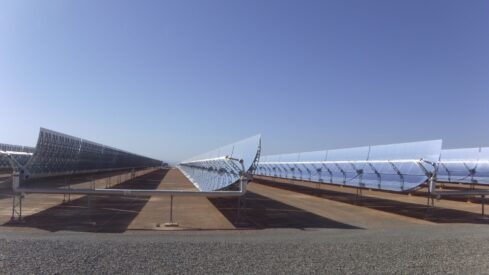Mars announces first 100% renewable steam-based pet food production plant in Australia

The project integrates solar and thermal energy for sustainable pet food production. GlobalPETS learns more.
Mars Petcare has announced its Wodonga facility in Victoria will be its first large-scale steam-based renewable energy manufacturing site in Australia.
The facility, located about 300 km from Melbourne, produces pet food under the Pedigree and Whiskas brands. It is expected to reach 100% renewable energy for both electricity and process steam by 2026, aligning with Mars’ broader commitment to achieving net-zero emissions by 2050.
“This project positions Wodonga as a leader in green process heat manufacturing,” says Craig Sargeant, General Manager of Mars Petcare Australia and New Zealand.
Last year, Mars announced plans to pump A$112.6 million ($74.2M/€68.1M) into the site to enhance manufacturing capabilities. Over the past 6 years, it has received investments of over A$55.8 million ($36.7M/€33.7M).
Thermal energy
The facility will integrate a solar thermal plant featuring an 18-megawatt concentrated solar thermal (CST) system, which offers up to 10 hours of thermal energy storage.
CST, which concentrates solar energy to generate high-temperature heat, will minimize the site’s reliance on gas.
Additionally, the facility will deploy electric thermal energy storage (eTES), a system supported by the Commonwealth Scientific and Industrial Research Organization (CSIRO) government agency, to store heat generated from off-peak renewable electricity.
Government support
The Australian Renewable Energy Agency (ARENA), part of the Australian federal government, has provided A$17.2 million ($11.3M/€10.4M) in funding for the Mars facility, with the aim of showcasing CST technology as a viable renewable heat source for Australian businesses.
By utilizing solar and thermal technologies alongside hydrogen, ARENA hopes the plant will serve as a model for industrial facilities aiming to shift to renewable energy.
“This initiative may prove pivotal for industrial decarbonization, especially in sectors heavily dependent on gas,” adds ARENA CEO Darren Miller.
Furthermore, Mars has also collaborated with the Australian Gas Infrastructure Group (AGIG), a privately run owner and operator of natural gas infrastructure, to purchase renewable gas certificates and displace 10% of its total gas consumption.
Similar initiatives
With sustainability playing a critical role in pet food manufacturing worldwide, other players are building similar capabilities.
Earlier in the year, Brenmiller Energy, an Israeli thermal energy storage company, joined forces with European private-label pet food manufacturer Partner in Pet Food (PPF) to deploy a $5 million (€4.5M) system to deliver low-carbon steam in the company’s facility in Dombóvár, Hungary.
PPF says the system reduces reliance on fossil fuels and supports the company’s sustainability goals.
With the potential to cut PPF’s emissions by 42% by 2030, this collaboration allows Brenmiller to address industrial energy demands sustainably while contributing to Hungary’s renewable energy landscape.
